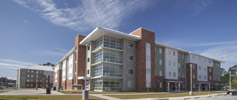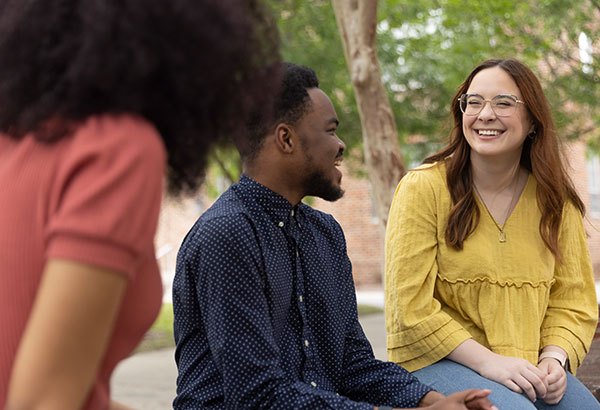Southeastern > Administration > Physical Plant Services > News & Events > Southeastern Sustainability earns national, state recognition
NEWS & EVENTS
Southeastern Sustainability earns national, state recognition
Tuesday, May 28, 2019 
by: Tonya Lowentritt
SOUTHEASTERN RECOGNIZED WITH ENVIRONMENTAL LEADERSHIP AWARD - Southeastern Louisiana University’s Sustainability Center has been recognized by the Environmental Leadership Program for its pollution prevention and commitment to environmental protection. Southeastern’s newest residence halls, Ascension Hall and Twelve Oaks Hall, draw from 220 geothermal wells situated 300 feet underground to heat and cool 556 rooms. The geothermal hybrid system will significantly cut down on heating and cooling costs.
HAMMOND – Southeastern Louisiana University’s Sustainability Center has been
recognized by the Environmental Leadership Program national organization for its pollution
prevention and commitment to environmental protection. Louisiana Department of Environmental
Quality Secretary Chuck Carr Brown, who served on the selection committee, will present
the award to Southeastern Physical Plant Director Byron Patterson and Sustainability
Manager Alejandro Martinez in Baton Rouge at the ELP Awards ceremony.
Southeastern has been focusing on conservation efforts, from the new geothermal
energy projects on campus to wind turbines at Southeastern’s Sustainability Center.
The center was created in order to save operating dollars and reduce waste going to
landfills, while at the same time providing an invaluable learning component for students
involved in energy, mechanical and construction engineering technology.
“Southeastern’s newest residence halls, Ascension Hall and Twelve Oaks Hall,
draw from 220 geothermal wells situated 300 feet underground to heat and cool 556
rooms,” Martinez said. “The earth is used as a heat source in winter and as heat storage
in summer. Geothermal production involves no combustion and creates zero air emissions
as gases removed from the wells are returned into the ground after giving up their
heat without exposure to the atmosphere.”
In addition to environmental benefits, Martinez explained, the geothermal hybrid
system will significantly cut down on heating and cooling costs.
“Over time, it is projected that savings greater than 50 percent will be captured
on energy expenses compared to a traditional method and build,” he said. “Equally
important on a university campus, the system also serves as a learning laboratory
for real-world experiences for Southeastern students in various disciplines.”
Among the elements of the Sustainability Center are solar panels on a number
of university buildings that generate hot water, as well as electricity; a strong
recycling program designed to reduce waste going to landfills by 80 percent; a tree
and plant farm, in which the university cultivates its own plants and trees for landscaping
on campus; a composting area that converts landscape waste into useable mulch and
compost; and rainwater retention ponds that provide irrigation for plants and support
a geothermal system for one of the center’s technology-rich classrooms.
Since beginning single-stream recycling in 2012, the university has recycled
255.94 tons of paper, plastics and metal cans. Approximately 99.185 tons of cardboard
have been recycled since Southeastern installed a cardboard baler in 2013. And, since
collaborating with Print Cartridge Recyclers of America in 2014, the university has
collected approximately 5.17 tons of used print cartridges and packaging for recycling.
For more information about Southeastern’s Sustainability Center, go to www.southeastern.edu/sustainability.






